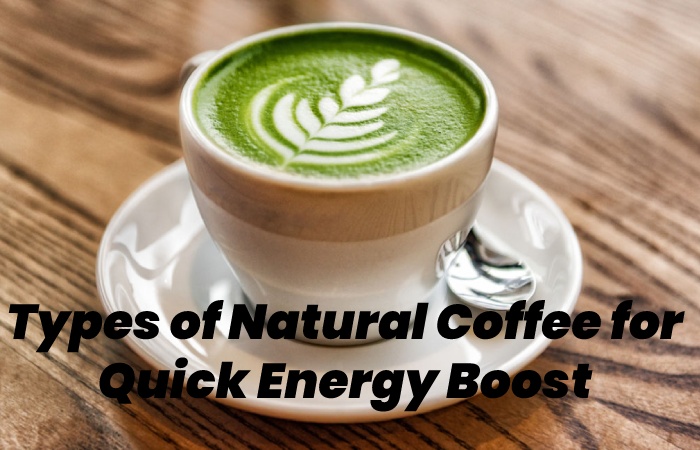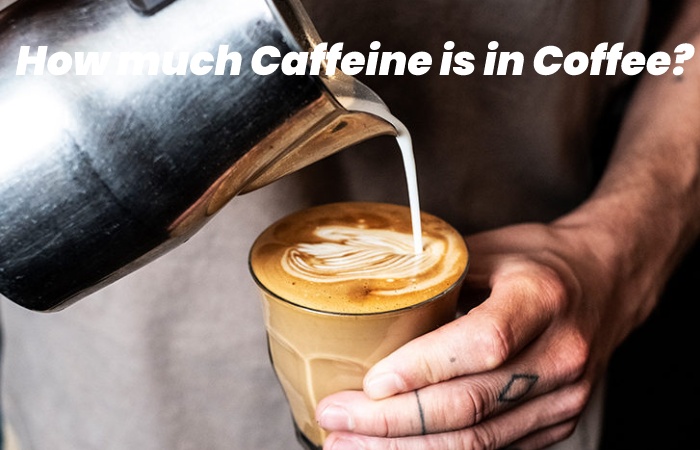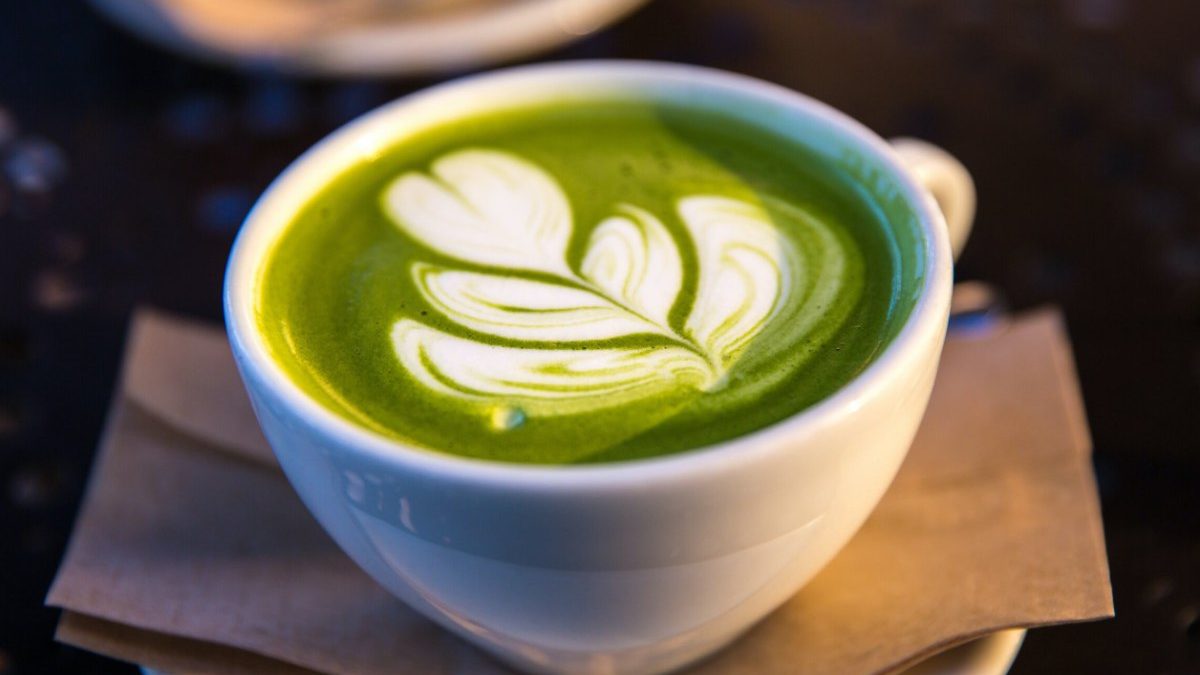Natural Coffee for Quick Energy Boost – Coffee has become a staple of daily use in most homes. With the variety of flavours, roasting methods, and blends, it has become easy to find something to suit everyone’s taste. Not only are there a variety of flavour profiles at your disposal, but also thousands of ways to brew coffee at home, making access easier.
Table of Contents
Types of Natural Coffee for Quick Energy Boost

First, let’s start with the age-old query, what precisely is coffee? Many of us drink it, but how many know what it is? The coffee is made from the beans of the coffee plant native to Ethiopia but also grows in many other places such as Africa, Asia, and Central and South America. Coffee grows best in these areas due to the subtropical weather. Coffee beans differ in size, shape, and flavour, contingent on where they originate. Arabica and Robusta are binary of the most excellent, excellent types of coffee.
Arabica has a mild flavour: This grain is grown at higher altitudes and usually has lower caffeine content. Approximately 70% of the world’s coffee production comes from Arabica beans.
Robusta is mainly used in coffee blends and instant coffee, and it is more profitable to grow: When making the comparison, this bean has a higher amount of caffeine and a more bitter palate.
Along with the common types of coffee, there are several ways that coffee beans can use for infusions. First, the beans must bake with dry heat. This roast can range from light, medium, or dark roast.
Benefits of Natural Coffee for Quick Energy Boost
Coffee provides some potential health benefits, but remember that these benefits may also come from other sources. One of the details coffee is famous for is improving energy levels. The stimulant caffeine is one of the world’s most widely used psychoactive substances. Caffeine can recover memory, mood, and energy levels. In addition to caffeine, coffee also has plenty of B vitamins per cup.
How much Caffeine is in Coffee?

One of the main reasons why people love to drink coffee is because of the significant amount of caffeine it provides. Different coffee beans produce different amounts of caffeine, but an 8-ounce cup of coffee generally provides 95 milligrams (mg) of caffeine. Awake to 400 mg of caffeine daily is carefully safe for most adults; however, a person’s sensitivity to caffeine could change a fair amount. Pregnant or lactating women often advise limiting their caffeine intake. It would advisable for other people to limit their caffeine intake for many reasons.
Natural Options as a Substitute for Coffee
Caffeine decreases insulin sensitivity and makes it harder for cells to respond to blood sugar. Medical researchers have discovered that high blood sugar levels can increase the risk of mortality and arterial deterioration associated with cardiovascular disease.
1. Alternatives to Coffee for Energy
There is good news for people who want to skip coffee but still need an energy boost in the morning or afternoon. Below are some healthy alternatives available.
2. Matcha Green Tea Powder
Matcha green tea powder is an excellent substitute for coffee. To drink match, put about 2 grams of powder in 1 cup of water and shake. It is rich in minerals, vitamins, and antioxidants. Match provides an energy boost to the equivalent of a regular cup of coffee but only a fifth of the caffeine. It is filtered out by the body for six to eight hours, providing long-lasting results deprived of the side effects of fatigue or low energy. Some research says that it can help recover memory by increasing dopamine in the body and concentration.
Healthy Alternatives to Coffee for a Quick Energy Boost
There are many alternatives to the morning cup of coffee. From mushroom-based coffee and decaf teas to match, there is undoubtedly something for everyone. If you’re trying to cut back on coffee, here are some options you might enjoy.
1. Mushroom-Based Coffee
Mushroom-based coffee could be an excellent option for those looking for a beverage with nutritional benefits. Mushroom coffees may contain caffeine, but the amount is usually less than a traditional cup of coffee. Some varieties, like mushroom hot chocolate, are also available as a caffeine-free option.
2. There’s Decaf Coffee
Decaf coffee or decaf tea might be a good option if you’re trying to limit your caffeine intake. For a beverage to decaffeinate, 97% of the caffeine must remove. The process for making a decaf batch is similar to that for coffee containing caffeine. A cup of decaf coffee has about 2 mg of caffeine. Look for a tag that says “decaffeinated,” or check the nutrition facts panel for the total caffeine content. Not all teas are decaffeinated—both black and green teas have caffeine—but wide varieties are not, including many herbal teas.
3. Chai
Chai is often written as “chai tea,” but the word chai means tea! This is a type of dark tea with a very intense flavour. It’s not caffeine-free but provides less than a traditional cup of coffee. A cup of chai contains around 50mg of caffeine and other nutritional benefits. However, it’s important to note that some varieties of chai are sold as decaf, so if you like the flavour but not the caffeine, they’re worth seeking out.
4. Golden Milk
It’s not coffee, but it feels like a hug in a cup. This drink is completely free of caffeine and prepare from animal or vegetable milk and spices such as turmeric and cinnamon. Golden milk originates in India and is also known as turmeric milk. You can make this delicious drink from scratch or use a mix of turmeric milk and spices. Not only is this drink caffeine-free, but it’s also nutrient-dense with no risk of dependency and fewer unwanted side effects. When drinking turmeric milk, do not forget that the yellow colour could stain clothes or towels.
5. Lemon Water
We could probably all benefit from drinking more water. On average, healthy people should aim to drink half their body weight in ounces. Instead of having a hot cup of coffee, try hot lemon water. Water is a great low-calorie, caffeine-free drink. Drinking lemon water also increases the consumption of vitamin C. When brewing, try adding a variety of other fruits or herbs to hot water as an alternative to coffee.
Conclusion
You love the pleasure you get from a hot cup of coffee, but you can’t stand the feeling of fatigue when that pleasure starts to wear off. Here are five alternatives to coffee that investigators have shown may provide energy throughout the day and may also provide some health benefits.

